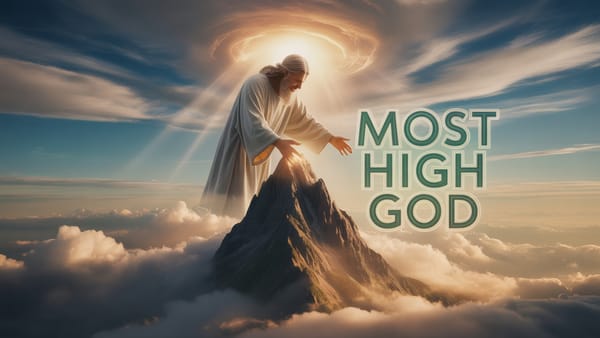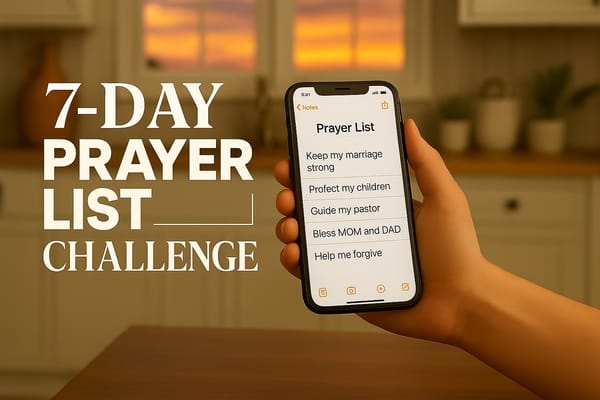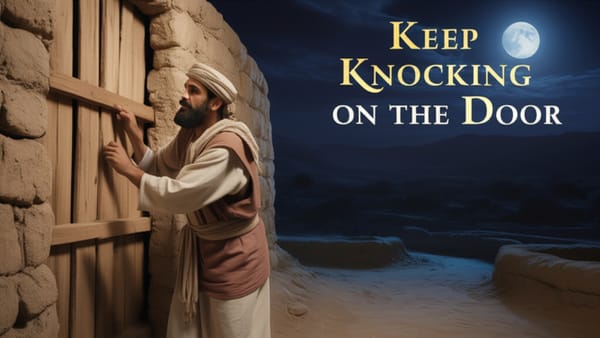The Demolition Prophet

He Wasn’t a Revivalist. He Was a Wrecking Ball.
John the Baptist wasn’t sent to patch up the old system.
He didn’t come to stir nostalgia or “bring back the good ol’ days” of temple religion.
He was sent to torch the whole thing.
With fire in his eyes and thunder in his voice,
he came as Heaven’s demolition crew —
God’s wrecking ball to crush hypocrisy, pride, and fruitless religion.
“Every tree that does not bear good fruit is cut down and thrown into the fire.”
— Matthew 3:10
His mission?
- To burn dead religion to the ground.
- To clear the rubble for the arrival of the King.
- To level every man-made mountain of pride.
- To raise up every broken valley of despair.
- To straighten every crooked heart with holy fire.
“Prepare the way of the Lord,
make His paths straight.
Every valley shall be filled,
every mountain and hill shall be made low,
the crooked shall become straight,
and the rough places shall become level ways,
and all flesh shall see the salvation of God.”
— Luke 3:4–6
He wasn’t polishing the old wineskins.
He was tearing them apart.
Because the King was coming —
and nothing false could stand in His path.
The Whole House Was Rotten
By the time John burst onto the scene, the entire religious system looked impressive on the outside—but inside, it was hollow, rotting, and ruled by men, not God.
- The temple had become a marketplace. Sacrifices were corrupted. People brought blind and diseased animals to the altar—offerings God had forbidden (Malachi 1:7–8).
- The priesthood was for sale. Rome pulled the strings. Spiritual leaders feared Caesar more than Yahweh.
- The Pharisees preached holiness but lived on pride. Their legalism replaced love. Their rules buried the heart of God.
- The Sadducees denied angels, miracles, resurrection—the very power of God (Acts 23:8). They kept their seats by keeping God out.
- The people were exhausted. Beat down. Spiritually starved. Buried under man-made rules with no hope of freedom.
And into this decaying system steps a man—not from Jerusalem, but from the wilderness.
No robe.
No rank.
No approval.
Just fire.
Just truth.
Just the Word of God in his bones.
He was a Levite, born of a priest. But he walked away from the system. He chose not the temple but the river. Not the robes but the camel hair. Not the politics but the presence.
Because God was no longer in the house.
The glory had left the building.
And John was sent to level it all—to prepare the way for the One who would bring glory back.
“You Brood of Vipers…”
That’s how John opens his sermon.
Not with a handshake.
Not with “Welcome” or “Shalom.”
But with:
“You brood of vipers.” (Luke 3:7)
Why?
Because the people he’s speaking to—the Pharisees, the Sadducees, the religious elite—weren’t guiding others to God. They were poisoning them.
This wasn’t poetic license. It was prophetic diagnosis.
In 1st-century Judea, a “brood of vipers” was a vicious insult—calling someone the offspring of snakes. It meant:
You come from a lineage of deception.
You carry venom in your mouths.
You slither in robes but strike with lies.
You’re not sons of God. You’re sons of the serpent. (John 8:44)
In 2025 terms?
He’s calling out the toxic preachers, the profit-driven influencers, the smiling manipulators who preach “God” but serve self.
He’s calling out viral pastors who sell hype instead of holiness.
The prosperity pushers, the soft-gospel celebrities, the algorithm disciples.
He’s saying:
You’re not healing the people.
You’re injecting venom into their veins.
And you will be held accountable.
John doesn’t flatter. He doesn’t network.
He confronts.
He testifies before the holiness of God—and everything false starts shaking.
“Do not begin to say to yourselves, ‘We have Abraham as our father.’ For I tell you, God is able from these stones to raise up children for Abraham.”
— Luke 3:8
John is tearing down the foundation of their false security.
They were saying:
“We’re good. We’re Abraham’s children. We have the name. We’re in.”
And John shouts:
No, you’re not.
God can write lineage into gravel.
He can turn stone into sons.
He can create bloodlines out of dust.
He doesn’t need your pedigree.
You need His mercy.
John is exposing the real distance between religious appearance and holy repentance.
He’s testifying before the Holy, Holy, Holy God of Israel—and in that light, nothing fake survives.
He wasn’t trying to win friends.
He was trying to prepare hearts—
for fire.
“The Axe Is Already at the Root”
The system wasn’t just broken.
It was under judgment.
John doesn’t say the axe will come.
He says:
“Even now the axe is laid to the root of the trees.” (Luke 3:9)
This isn’t warning of future consequences.
It’s announcing imminent execution.
The axe isn’t swinging in the air.
It’s already pressed into the bark.
The tree is one breath from falling.
John is speaking as the forerunner of Jesus Christ, the Son of the Living God—and he’s declaring that every fruitless tree will be cut down and burned.
“Every tree therefore that does not bear good fruit is cut down and thrown into the fire.”
— Luke 3:9
This isn’t about trying harder.
This isn’t about patching the old wineskin.
This is repent or perish.
Not the Tree of Psalm 1
This tree John speaks of isn’t the righteous tree of Psalm 1:
“He is like a tree planted by streams of water that yields its fruit in its season.”
— Psalm 1:3
No—this is the religious tree that looks alive but is dry at the root.
It doesn’t drink from the Living Stream.
It bears no fruit of repentance, only leaves of performance.
It is the temple without presence.
The priesthood without holiness.
The tradition without truth.
And the axe has come for it.
The Law Was a Shadow—Now the Light Has Come
John's message slices through 2,000 years of religious heritage like a sword.
The Mosaic Law—the temple sacrifices—the priestly line—the national identity—
it all bows now to the Lamb of God who is stepping into human history.
Jesus isn’t coming to revive the old system.
He’s coming to replace it.
Not to patch the covenant, but to fulfill it and establish a new and better one.
“For the law was given through Moses; grace and truth came through Jesus Christ.”
— John 1:17
The old covenant is ending.
God Himself has come.
And the axe is clearing space for the Kingdom of Heaven.
This is not sentimental.
This is judgment-day clarity.
What God is planting cannot grow in the same soil as the old, corrupt tree.
The axe must strike.
Why Wasn’t He in the Temple?
Because God wasn’t there anymore.
The word of the Lord didn’t come to the high priest in Jerusalem.
Not to the man in linen robes behind golden walls.
Not to the Sanhedrin seated in pride.
Not to the institution bloated with wealth and empty of the Spirit.
It came to a wild man in camel’s hair,
a voice crying in the wilderness,
a Levite who refused to serve in a corrupt temple.
“The word of God came to John the son of Zechariah in the wilderness.”
— Luke 3:2
Why?
Because God was done patching the old system.
He wasn’t going to renew it.
He came to replace it.
And that replacement—Jesus Christ, the Son of God—was already walking the hills of Galilee.
John’s mission was clear:
“Prepare the way of the Lord, make his paths straight.”
— Luke 3:4
He wasn’t sent to decorate the temple.
He was sent to bulldoze the mountain of religion—
so the Lamb of God could walk in unhindered.
A New Temple. A New People. A New Baptism.
Everything in Luke 3 points forward.
John’s message wasn’t nostalgic—it was revolutionary.
-A New Baptism
The Jews already practiced ceremonial washings.
Jerusalem was full of mikvahs—ritual pools for purification.
But John’s baptism was radical:
Not temple-based. Not priest-controlled.
It was repentance for forgiveness, in public, outside the system.
And he said it wasn’t enough:
“He will baptize you with the Holy Spirit and with fire.”
— Luke 3:16
This new baptism would come not from Levi, but from the Lamb.
Not in water only, but in the burning Presence of God.
-A New Threshing
John saw what was coming:
A winnowing fork in Jesus’ hand.
Not a religious rake to tidy things up—
but a judgment tool to separate wheat from chaff.
“His winnowing fork is in his hand, to clear his threshing floor and to gather the wheat into his barn,
but the chaff he will burn with unquenchable fire.”
— Luke 3:17
This wasn’t about following more rules.
It was about whether your heart had truly repented.
God Himself was coming to sort the souls of men.
-A New People
The old boast was: “We have Abraham as our father.”
But John shattered that pride:
“God is able from these stones to raise up children for Abraham.”
— Luke 3:8
This was the end of lineage-based holiness.
The birth of a people born not of flesh, but of Spirit.
This is what John’s father, Zechariah, prophesied at John’s birth:
“And you, child, will be called the prophet of the Most High;
for you will go before the Lord to prepare his ways,
to give knowledge of salvation to his people
in the forgiveness of their sins.”
— Luke 1:76–77
John wasn’t sent to preach moral improvement.
He was sent to pull down the system—
to prepare the earth for the coming of a Kingdom not made by hands.
“Destroy this temple, and in three days I will raise it up.”
— John 2:19
The new temple was already walking among them.
And John was clearing the path.





